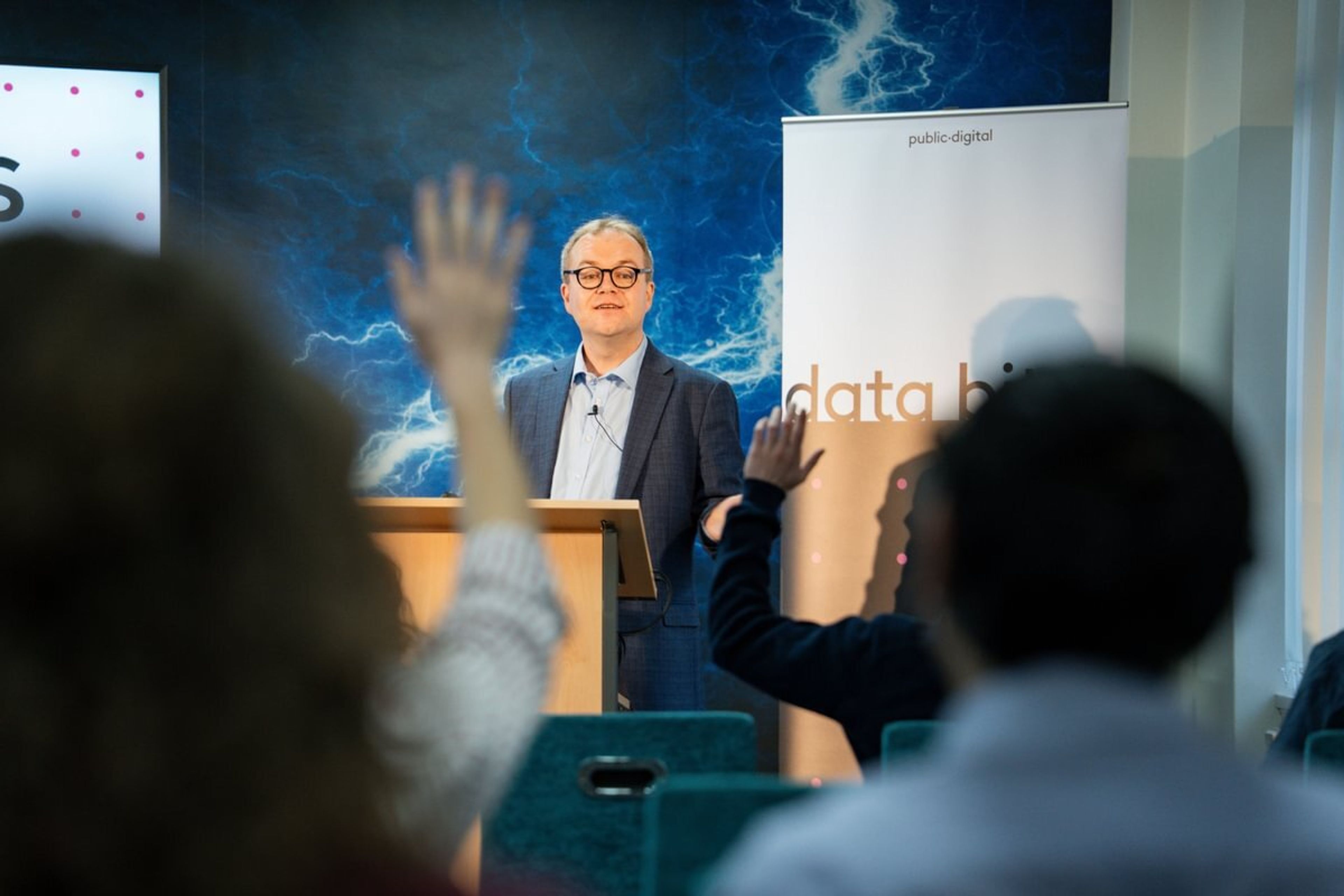
Helen, an AI chatbot at St. Helens
Ste Sharples at St Helens Council introduced us to their AI chatbot, Helen. This is designed as a ‘single front door’ for people to ask questions about all council services.
Elliot Bridges, Senior Data and Insights Analyst at the Human Fertilisation and Embryology Authority (making his second appearance at Data Bites), talked about the HFEA’s (award-winning) dashboard, which allows users to explore fertility statistics.
See Elliot’s slides.
The Human Fertilisation and Embryology Authority (HFEA) has launched what is thought to be the first fertility dashboard of its kind in the world. Drawing on data from the HFEA’s national fertility register, it offers accurate and customisable UK-wide information in an accessible format on the HFEA website.
The dashboard covers fertility treatments such as egg freezing and birth rates, as well as information on patients, partners, donors and children born from these treatments. It includes around 1.5 million IVF treatments and 275,000 donor insemination treatments undertaken by around 700,000 patients since 1991.
Until now, responding to data requests from other teams, researchers, organisations and members of the public required significant time and resources. The dashboard makes the most commonly requested data publicly available, in a format that can be easily used by both technical and non-technical audiences.
For fertility patients, this means access to reliable, easy-to-understand data that can help guide decision-making during complex treatments. The same data is also being used to inform research and policy development.
Building the dashboard was not without challenges. It represented a significant increase in the scale of data published by the HFEA and required extensive buy-in from internal and external stakeholders. Accessibility, anonymisation, and user testing were critical considerations throughout.
The HFEA will consider the project a success when the dashboard becomes a routine tool for answering questions, guiding policy, and deepening public understanding of fertility treatment. Looking more widely, the team would like to see greater openness in sharing non-identifying data between organisations, and more consistency in how UK nations publish their datasets.
